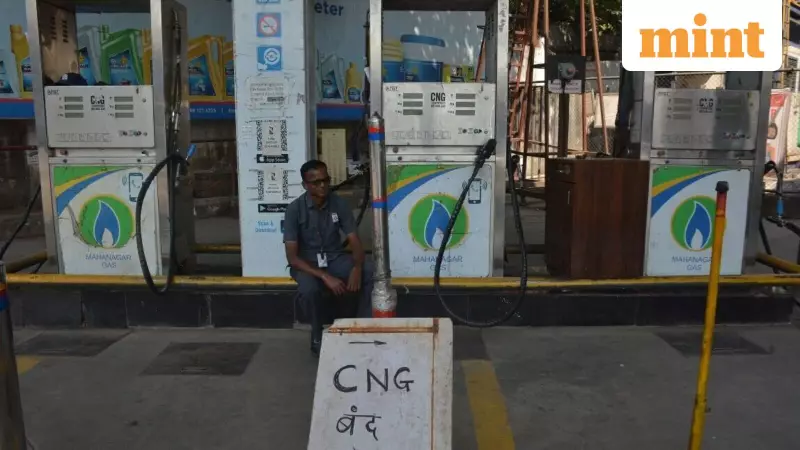
Mumbai Transport System Thrown Into Chaos After Gas Pipeline Damage
A severe disruption in Mumbai's gas supply network has created widespread transportation chaos across the metropolitan region, affecting millions of daily commuters. The crisis emerged after significant damage occurred to a major gas pipeline, causing ripple effects throughout the city's transport ecosystem.
Commuters Bear the Brunt of Soaring Fares
Autorickshaw drivers across Mumbai, Thane and Navi Mumbai have dramatically increased their fares, with many doubling their usual charges. Social media platforms have become flooded with complaints from frustrated residents facing exorbitant transportation costs.
One commuter reported being charged between ₹150 and ₹200 for a route that normally costs ₹89 from MIDC to Andheri. Even more alarming, another resident informed HT.com that some rickshaws are demanding as much as ₹500 for short trips to nearby metro stations.
The situation has become so dire that many office-goers have opted to work from home rather than face the twin challenges of auto shortages and unaffordable fares. The crisis has also impacted ride-hailing services, with platforms like Ola and Uber implementing surge pricing that pushed costs significantly higher than normal rates.
Pipeline Damage Triggers Widespread Supply Disruption
The root cause of this transportation nightmare traces back to damage inflicted on GAIL's primary gas supply pipeline. The incident occurred within the premises of Rashtriya Chemicals and Fertilisers (RCF), severely affecting gas flow to the crucial City Gate Station at Wadala.
This facility serves as Mumbai's main gas supply hub, and the break in supply led to reduced pressure across the entire network. The consequence has been severely impacted operations at numerous CNG stations throughout the city, creating long queues of vehicles waiting for limited fuel supplies.
Mahanagar Gas Limited (MGL) confirmed the supply issue on Sunday, acknowledging that the damage to the main gas pipeline inside the RCF compound had affected their Wadala operations. The company has prioritized maintaining uninterrupted supply to domestic PNG consumers while working to restore normalcy to CNG stations.
Economic Impact on Drivers and Commuters
The transportation crisis has created a dual economic impact, affecting both auto-rickshaw drivers and daily commuters. Drivers have lost significant earnings while spending extended hours waiting in queues for CNG, prompting the Mumbai Autorickshaw-Taximen's Association to demand compensation from MGL for two days of lost income.
Meanwhile, commuters face not only inflated transportation costs but also reduced availability of vehicles. The shortage of CNG has forced many taxi drivers, particularly those working with Ola and Uber, to switch to more expensive petrol, further exacerbating the fare increases.
The HT report highlighted that a typical trip from Mira Road to BKC, which usually costs between ₹400 and ₹450, exceeded ₹600 during the crisis. MGL has assured that supply will be restored quickly, but the incident has exposed the vulnerability of Mumbai's transportation system to disruptions in gas supply infrastructure.





